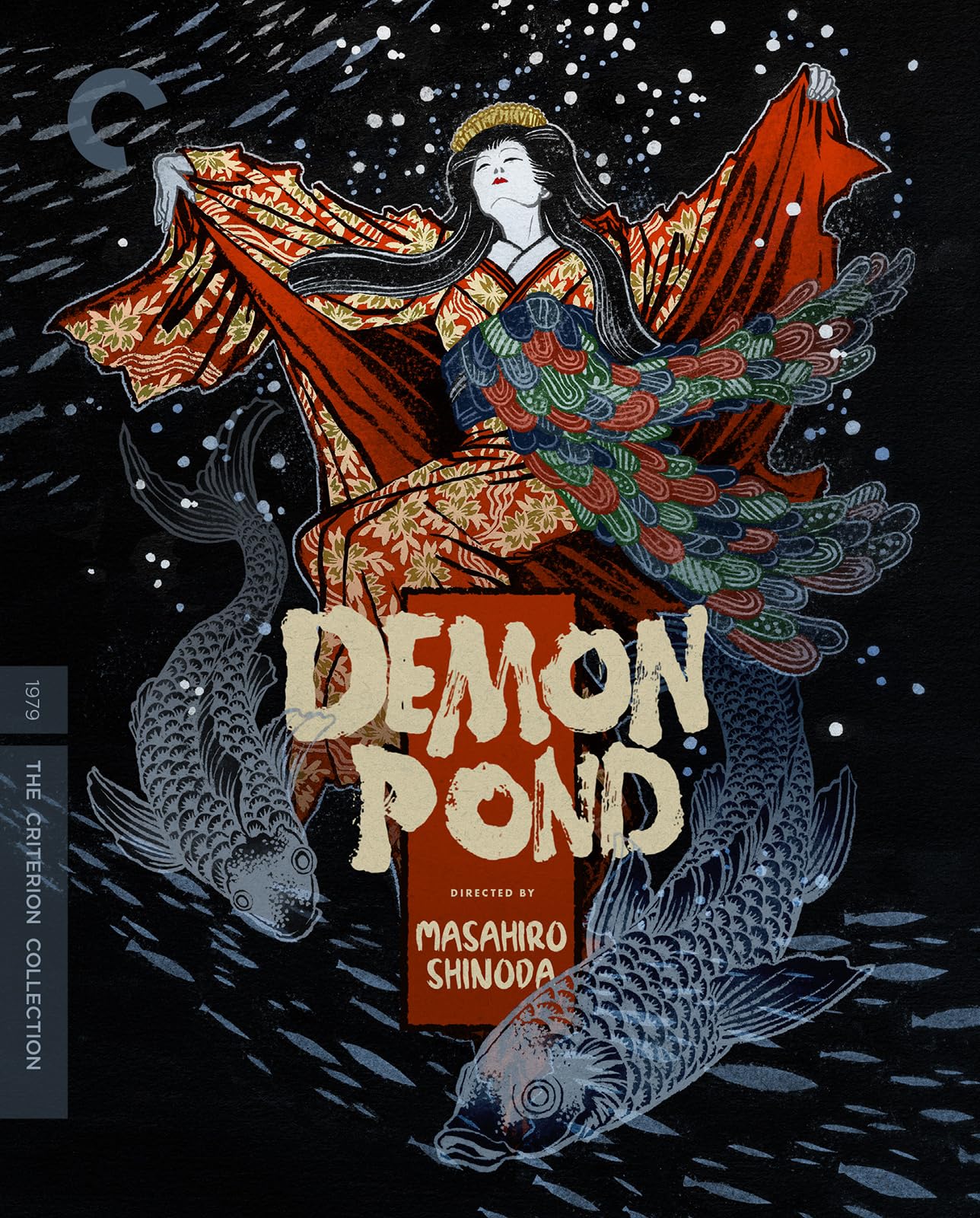Gakuen (Tsutomu Yamazaki) is a teacher and botanist who travels alone through the wilds of rural Japan, eventually stumbling across a drought-stricken village so desperate for water that breast milk is used as a substitution. He meets in this village an old friend, Akira (Go Kato), who is married to a mysterious woman named Yuri (in classic Kabuki tradition played by a man, actor Tamasaburo Bando) who tells Gakuen of a nearby haunted stream that flows from the cursed Demon Pond, said to be lorded over by the vengeful dragon princess who must be quelled with a bell rang thrice daily. Gakuen discovers that Akira is the designated bell ringer of the village who is sworn to this solemn duty with Yuri as his reward for servitude. With Gakuen pressuring Akira to leave the village with him and the villagers threatening to sacrifice Yuri to the gods of the Demon Pond to end their drought, the film comes to a head in a yokai-fueled fever dream where myth and legend clash with local superstition and greed.
Director Masahiro Shinoda was a key figure of the Japanese New Wave of the ’60s with films like One Way Ticket to Love and Pale Flower. But with 1969’s Double Suicide, Shinoda grew increasingly more and more experimental and strange with his films, from the revisionist historical fantasy Himiko to the unsettling meditation on marital obsession Under the Blossoming Cherry Trees. This weird period reached its apex with the 1979 film Demon Pond, a film that is both slavishly faithful to its kabuki play roots while also being boldly original and inventive. The first half of Demon Pond unfolds as an eerie, pastoral folk horror. Gakuen begins to hear these rumors and legends of the spirits of the nearby mountains with Yuri’s otherworldly presence looming large. It is as first reminiscent in tone of stories like The Ghost of Yotsuya where the supernatural springs forth from more grounded human drama. But around the halfway point, Shinoda switches gears into full-on yokai fun party time, and the movie is taken to a whole other level of bat shit craziness. We’ve got dragons, fish, samurai ghosts, crab monsters and all sorts of other wacky yokai discussing whether to destroy the humans for pissing them off. It could be seen as an eco-horror, the humans suppressing the natural world with its bell ringing while nature wants to restore balance and wipe out the encroaching civilization. The decision to remain so faithful to the kabuki traditions, regardless of how alien and outdated it may look, is a bold choice for Shinoda that I think really pays off, in a way making it feel even more experimental and contemporary than if he had toned down the yokai elements and played it safe with a more traditional Japanese ghost story approach. While not seen very much in the West, Shinoda’s and Demon Pond‘s influence can be felt in many of the more bold Japanese directors of new generations like Shin’ya Tsukamoto and Takashi Miike (who would release his own filmed stage-play version of the Demon Pond story in 2005).
The beautiful new restoration for Demon Pond was handled by Shochiku and personally supervised and approved by director Shinoda as well as actor Tamasaburo Bando whose Yuri is really the heart and soul of the film. The transfer does contain a little bit of source damage at times but overall is hardly noticeable. The film is shot largely during twilight hours and the image quality represents this hazy period of day fading to night wonderfully with naturalistic colors and a richly textured color palette. The mono audio track is nicely presented with little to no hiss or distortion, capturing the eerie tones of the film well. On extras we first have an interview with film scholar Dudley Andrew who discusses the original play on which Demon Pond was based on how Shinoda approached fusing the kabuki experience with film. We also have a cool featurette on how the special effects were accomplished. I actually thought this was really neat and wish other releases had this kind of extra. The disc also includes a physical booklet with an essay on the film by film critic Michael Atkinson that offers a nice overview of the film and its place in Shinoda’s career.
Demon Pond is a criminally under-seen, visionary, potential cult classic, and I am absolutely delighted that it has been given a top notch technical presentation courtesy of The Criterion Collection. If you are a fan of Japanese horror films or you just dig bizarre movies, the insane kabuki wonderland of Demon Pond must be seen to be believed.

